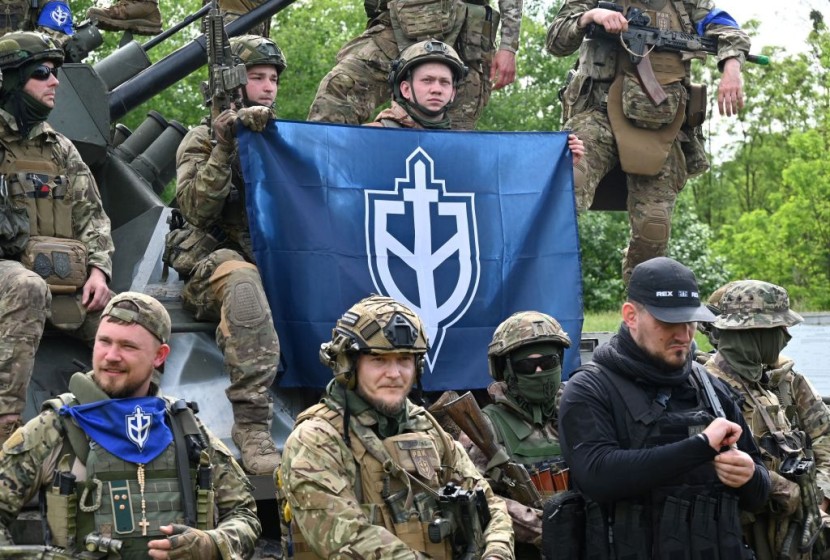
- Leader of the anti-Kremlin group Russian Volunteers Corps. was found to be led by a far-right extremist
- The group is thought to be one of those responsible for the Belgorod raid earlier this week
- The leader, identified as Denis Kapustin, boasted of his forces at one point controlling 42 square kilometers of Russian territory
The anti-Kremlin group, known as the Russian Volunteer Corps., which is one of the two groups responsible for the Belgorod raid, was found to be led by a far-right extremist.
The fighters have aligned themselves with Ukraine amid the conflict and are taunting the Russian military. The leader of one of the groups, Denis Kapustin, expressed his pride that his anti-Putin Russian forces at one point had control over 42 square kilometers of Moscow's territory.
Anti-Kremlin Group Led by Neo-Nazi
Kapustin said that he wants to prove that it is possible to fight against a tyrant, a reference to Russian President Vladimir Putin. He argued that the Russian strongman's power was not bottomless and claimed that his forces would run if faced with powerful opposition, as per the New York Times.
His remarks are seen as the rhetoric of a dissident freedom fighter, but German officials and humanitarian groups, including the Anti-Defamation League, identified Kapustin as a neo-Nazi. This was due to the Russian Volunteer Corps openly espousing far-right views.
The group's leader, who used the alias Denis Nikitin for a long time but is most commonly known as White Rex, is a Russian citizen. In the early 2000s, he moved to Germany, and he was associated with a group of violent soccer fans. Later, he became one of the "influential activists" in a neo-Nazi splinter group within the mixed-martial-arts scene.
Kapustin is also banned from entering Europe's visa-free, 27-country Schengen zone. But he argued that the situation was that Germany only canceled his residency permit. The group's assistance in the conflict only becomes an awkward development for the Ukrainian government.
This is because Russia has justified its invasion of Kyiv by fighting neo-Nazis in the region, which Putin has used as a regular reason for his aggression. But the latest attack has exacerbated concerns that the Kremlin could have a serious security problem, according to The Atlantic.
Russia's Alleged Lack of Border Security
The string of assaults began earlier this month and suggested to Russians that their country's security system is starting to crumble. The first of the recent attacks was a drone strike that targeted the roof of the Russian president's residence in the Kremlin and was conducted on May 4.
The latest is the Belgorod raid. Some say that even a year and a half into the conflict, the Federal Security Service (FSB) has insufficient workforce to protect against small units from Ukraine.
But on Wednesday, the Russian government said it could fight off the assault in the border region. However, this was after drone attacks and fighters on the ground caused damage to homes and infrastructure and forced thousands of residents in the area to flee, said NBC News.
© 2025 HNGN, All rights reserved. Do not reproduce without permission.








